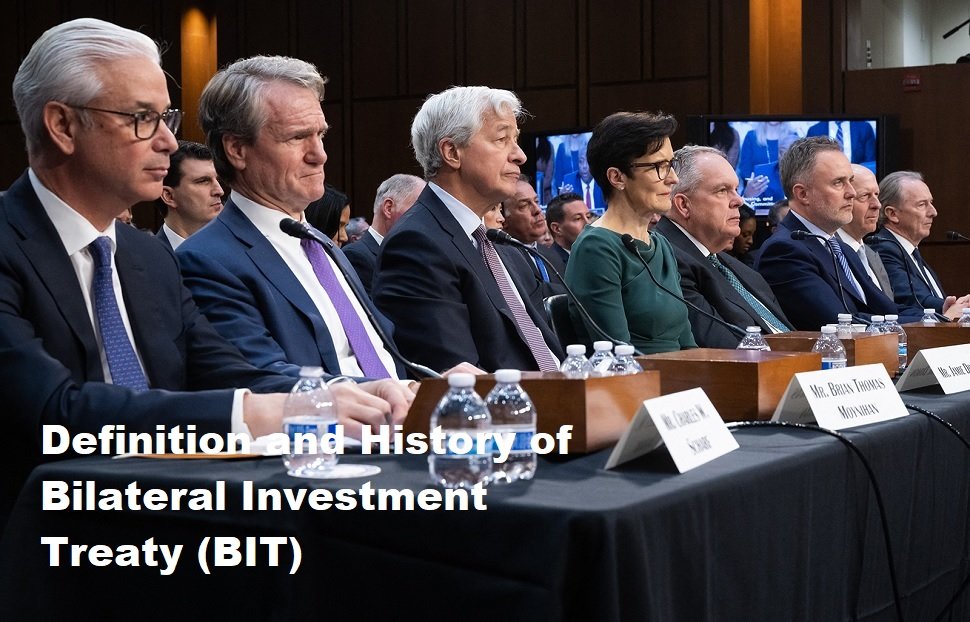Bilateral Investment Treaty (BIT) is an agreement between two countries which aims to promote and protect investments made by investors from each country in the territory of the other party country. The BIT concept was introduced to create a stable, transparent and fair investment environment between both parties. This is useful for reducing uncertainty and risk in investing in foreign countries and also provides legal protection for investors. The history of BITs can be traced back to 1959, when Germany and Pakistan signed the first bilateral investment agreement. Then, a number of countries, including the United States, also began to explore the possibility of signing similar agreements with other countries in an effort to protect the interests of domestic investors abroad. Basically, BITs are designed to ensure that foreign investors are given the same rights as domestic investors.
The evolution of BIT has experienced several quite significant stages of development over time. Initially, BIT focused more on protection against investment expropriation, namely the revocation of property rights without legal compensation by the country receiving the investment. However, as time progressed, BITs began to cover other important issues such as investor-state dispute resolution and regulations on capital transfers. Throughout its history, BITs have undergone changes to accommodate global economic developments and international trade arrangements. This change includes the addition of new, broader provisions in the aspects of investment protection and promotion. Currently, BITs not only cover expropriation protection, but also other important aspects such as fair and comparable treatment, environmental protection provisions, and recognition of Human Rights in the investment context. This proves that BIT continues to develop in line with increasingly complex global dynamics.
Aims and Benefits of the Bilateral Investment Treaty
The main objective of the Bilateral Investment Treaty (BIT) is to provide protection for foreign investments made by investors from signatory countries. This protection is provided through various provisions in the agreement that ensure fair and appropriate investment management for foreign investors. This includes guaranteeing legal ownership rights, appropriate compensation in the event of nationalization or expropriation, and resolving disputes through international arbitration. Apart from the aim of investment protection, BITs are also intended to strengthen economic relations between the two signatory countries. With this agreement, relations between countries become closer and trust between parties increases, thereby facilitating cooperation in various fields. The scope of this agreement extends to trade, services and exploitation of shared natural resources, while being mutually beneficial for both parties.
BIT also functions to increase legal certainty for foreign investors who invest in partner countries. This legal certainty is important because it helps reduce risks for investors while creating a conducive investment climate. Thanks to BITs, investors can feel more confident in making investment decisions, reducing the possibility of legal conflicts, and ultimately encouraging bilateral investment flows. Another benefit of the BIT is that it encourages economic growth in the two signatory countries. As a result of more effective investment protection, greater legal certainty, and stronger economic ties, foreign investment has the potential to increase significantly. This investment will create new jobs, generate knowledge and technology transfer, and bring other business opportunities that will spur economic growth on both sides. Therefore, BIT is an important instrument in efforts to improve the economic welfare of a country through international cooperation.
General Structure and Content in a Bilateral Investment Treaty (BIT)
The investment protection clause is an important component in the Bilateral Investment Treaty (BIT). This clause aims to guarantee legal protection for investments made by investors from the two countries that are parties to the agreement. This protection includes physical security, protection against expropriation without fair and adequate compensation, and recognition of intellectual property rights. In establishing this clause, both countries must ensure that their obligations comply with the principles of international law and good practice in investment protection.
Fair and equal treatment clauses are an important part of the general structure of BITs. This clause emphasizes that party states must provide fair, equal and non-discriminatory treatment to investors and their investments from other party states. This includes market access, business opportunities, property rights and general operations. The preparation of this clause must pay attention to the balance between the rights and obligations of investors and investment hosts as well as safeguarding the interests of the community.
The investor-state dispute settlement clause or ISDS is a mechanism in BITs that is useful for resolving disputes between investors and investment host countries. ISDS will generally refer to an international arbitration institution that will resolve disputes based on legal rules agreed by both parties. In drafting these clauses, countries must create an efficient, fair, and transparent process to protect the rights of investors and host countries.
Legal transparency and environmental standards are important aspects in the context of BITs. Both countries need to ensure that rules and regulations related to investment and the environment can be easily accessed by investors from both parties. Apart from that, BITs also need to regulate how environmental protection obligations are implemented in investment practices. In this regard, BITs should encourage investors to carry out their investments in an environmentally friendly manner, adopt clean technologies, and comply with environmental standards applicable in the host country. In drafting this clause, both countries must commit to protecting and preserving natural resources and the environment as part of sustainable development.
Criticism and Controversy Regarding the Bilateral Investment Treaty
In the context of Bilateral Investment Treaties (BIT), criticism and controversy often arise regarding their impact on member countries’ domestic policies. As an instrument that functions to protect the rights of domestic foreign investors, BITs are often seen as reducing the state’s autonomy to regulate its own economic sector. Countries that are parties to BITs may feel pressure to limit intervention in economic policy in order to maintain good relations with partner countries and foreign investors. An issue that also arises regarding BITs is the balance between state and investor rights. There is a view that states that BITs give foreign investors an extraordinary advantage in economic competition in a country, while sacrificing domestic rights and interests. This could lead to wider injustice in the economy, where the fate of local companies is threatened by fighting global participants supported by BITs.
Widespread criticism is also related to the potential for abuse in resolving ISDS (Investor-State Dispute Settlement) disputes. ISDS is an international dispute resolution mechanism usually provided in BITs, where investors can sue the host government if they feel disadvantaged by the implementation of new regulations or policies. However, this process is often considered non-transparent and can be used by investors to sue the state with unreasonable demands, possibly even threatening state sovereignty. Given the impact and potential controversy that BITs can generate, it is important for member states to discuss and reform these agreements. In addition, transparency in the ISDS dispute resolution mechanism needs to be improved so that the court process becomes fairer for all parties involved. Countries that are members of the BIT must work together to create a balance between the need to protect the rights of foreign investors and the need to safeguard the national interests and economic sovereignty of each country.









